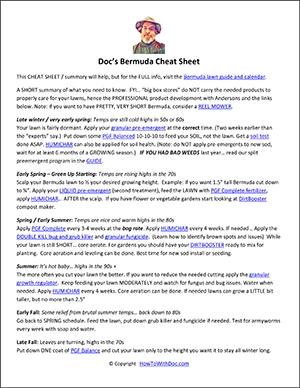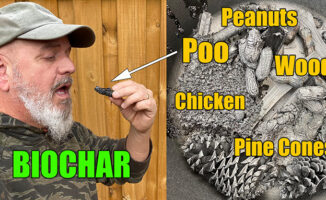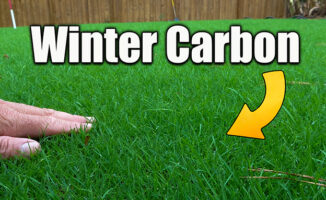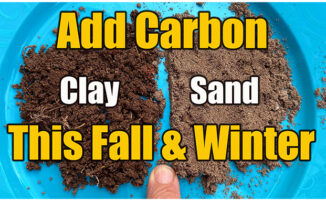What are Soil Microbes and how do they help plants and lawns?
(Products at Bottom of Page) There are more microbes in a teaspoon of soil than there are people on the earth. Soil microbes come in a variety of forms and are often lumped together in terminology, however the basic definition is… “A microorganism, or microbe, is a microscopic organism, which may exist in its single-celled form or a colony of cells.” In this video Doc discusses soil microbes and how they help our lawn and gardens.
Good Things Microbes Do
- Break down nutrients to a USABLE form for plants.
- Decompose organic matter
- Foster soil aggregate stability
- Recycle and regulate carbon, nitrogen and phosphorous
- Fix nitrogen for plant uptake
- Increase the available plant root area for nutrient uptake
- Degrade pesticides
- Improve soil structure
- Help control diseases
Soil microbes do all sorts of things in the soil when active, but mostly, they just “hang around” waiting for something to eat! Contrary to what some might think, soils are not seas of organic soup. Rather, they tend to be limiting in supplies of organic carbon to feed microbes and the competition for that carbon is fierce.
This is one reason why the rhizosphere, the zone of soil immediately around a plant root, is such a “hot spot” for microbial growth. Roots, as it turns out, give off organic carbon in a variety of forms (sloughed cells, exudates, etc.) that are exploited by the nearby microbes. So, one of the things that microbes do in soil is to reprocess these materials into available forms (i.e., mineralization) and into microbial cells and humus (recalcitrant, stable organic matter).
Types of soil microbes
Bacteria, actinomycetes, fungi, algae, protozoa and viruses
What soil microbes do
Think of it like this… soil microbes are the stomach of the plant. They break down nutrients and organic matter into basic chemical forms so that the plant can use them.
For example, bacteria break down organic matter, induce plant rooting, convert nutrients and fight other microbes. Fungi are voracious degraders, they recycle nutrients back to the plant, and eat other microbes. Some of the larger microbes, like protozoa and nematodes, live near the root zone and consume other microbes.
When microbes are in balance, they function like a fine-tuned engine to support the plant, increase yield and build soil health. But when the microbes are out of balance, that engine doesn’t work as well and at times can work against the plant. For example, fallow syndrome, fairy ring and other illnesses are due to imbalances within the soil.
Three mechanisms are usually put forward to explain how microbial activity can boost plant growth: (1) manipulating the hormonal signaling of plants (Verbon and Liberman, 2016); (2) repelling or outcompeting pathogenic microbial strains (Mendes et al., 2013); and (3) increasing the bioavailability of soil-borne nutrients (van der Heijden et al., 2008).
How temperature impacts soil microbes
Microbes are present in soils at just about all temps but their ACTIVITY decrease in times of stress. In the winter they are very inactive and in the hot dry summer months they are inactive in POOR soil. The best temps for soil microbe activity is 70 – 85 degrees soil temp.
Soils should look like black cottage cheese.
A great lecture from a real farmer.
Soil Health Products
HUMICHAR for adding carbon to the soil.
Microbe Pack Larger Size
Chicken Feed
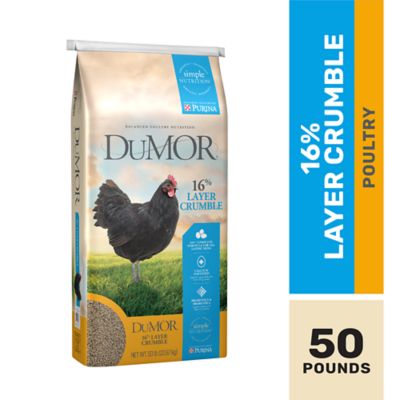
DuMOR 16% Layer Crumble, 50 lb., 3006316-306
DuMOR 16% Layer Crumble, 50 lb., 3006316-306 [More]
PGF Balance a pro grade 10-10-10 lawn and garden fertilizer
Granular Pre Emergent for the lawn
Dirt Booster for garden composting









